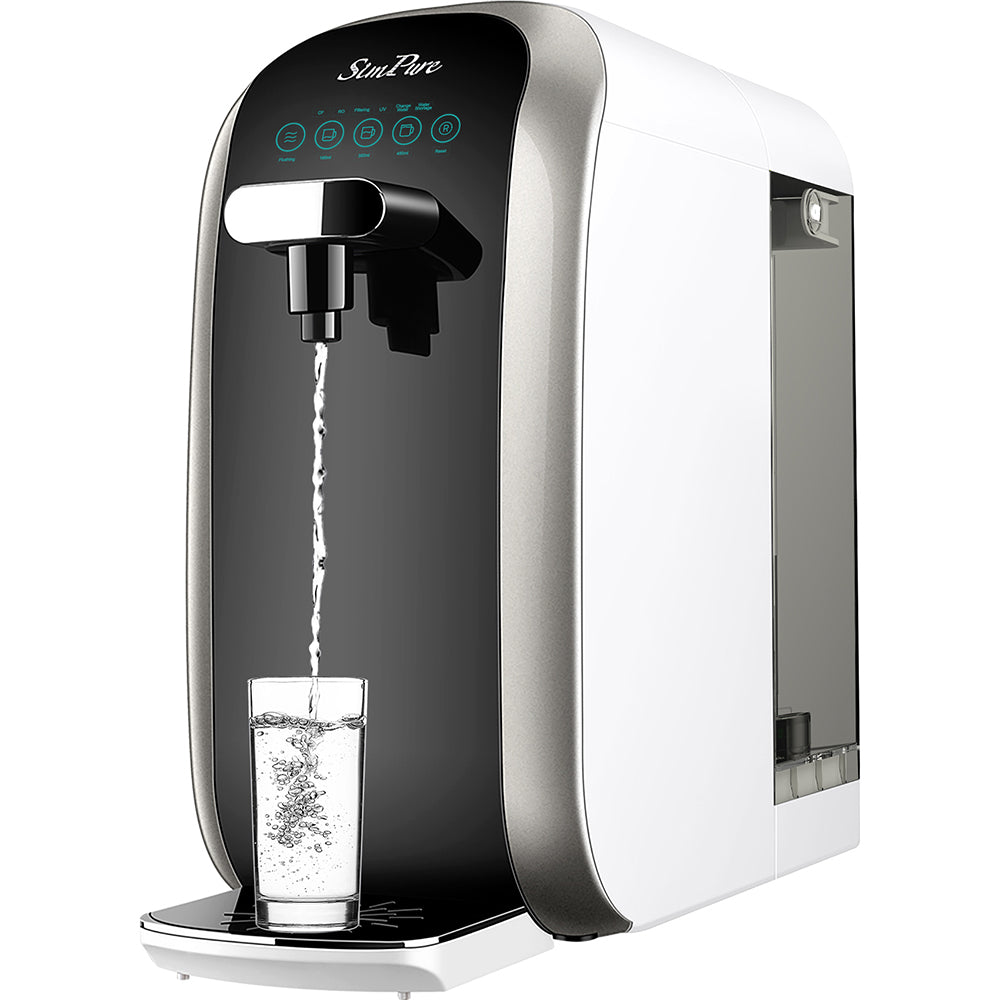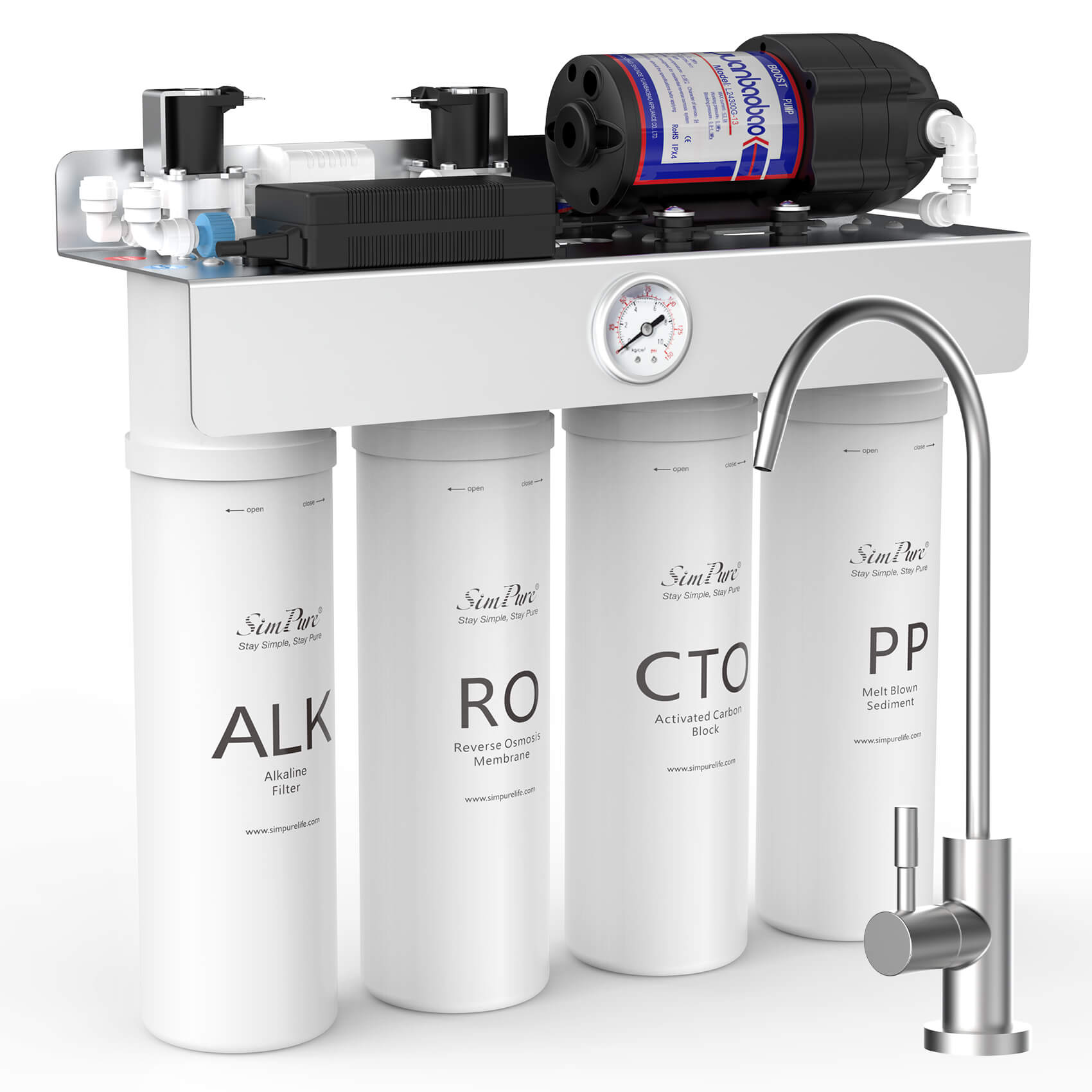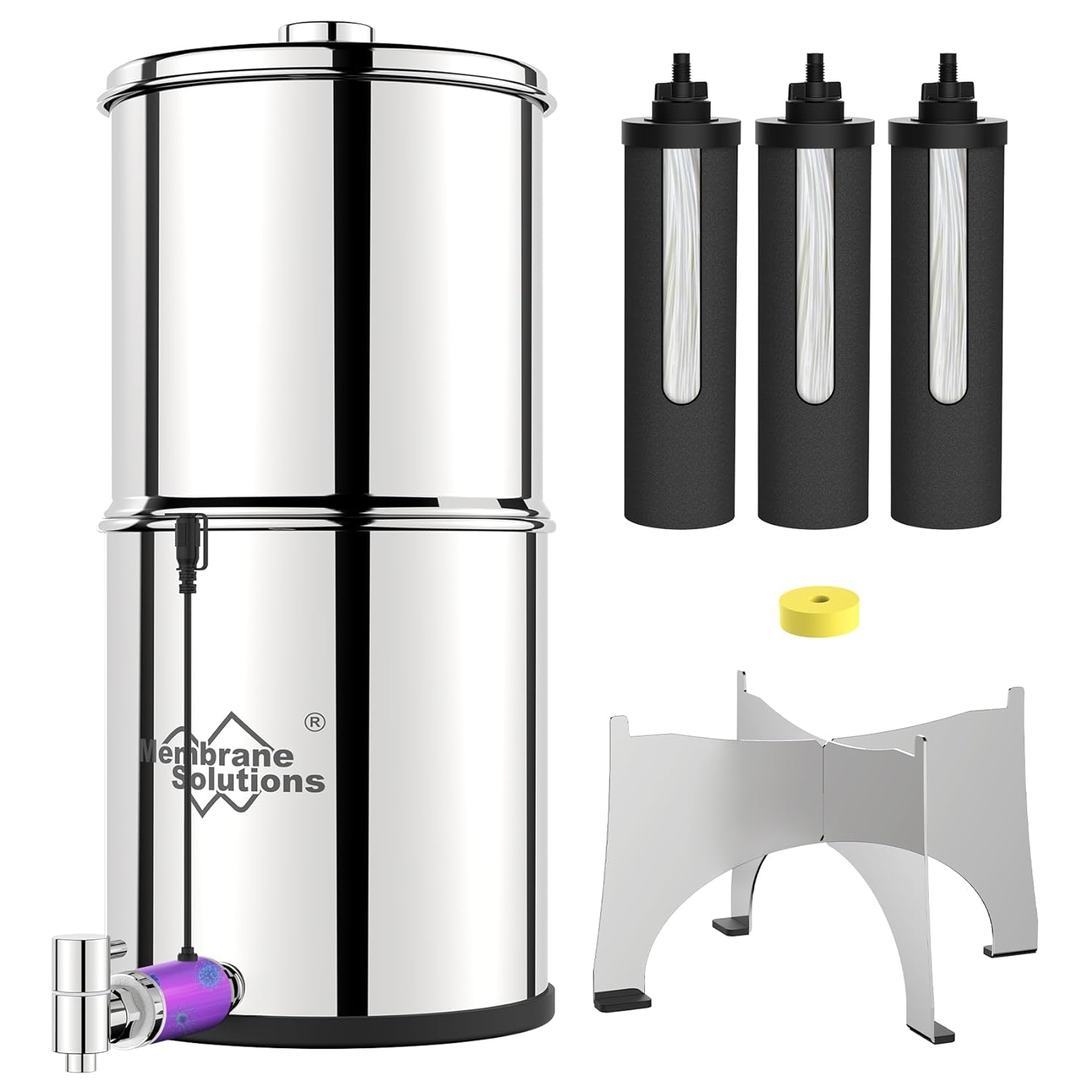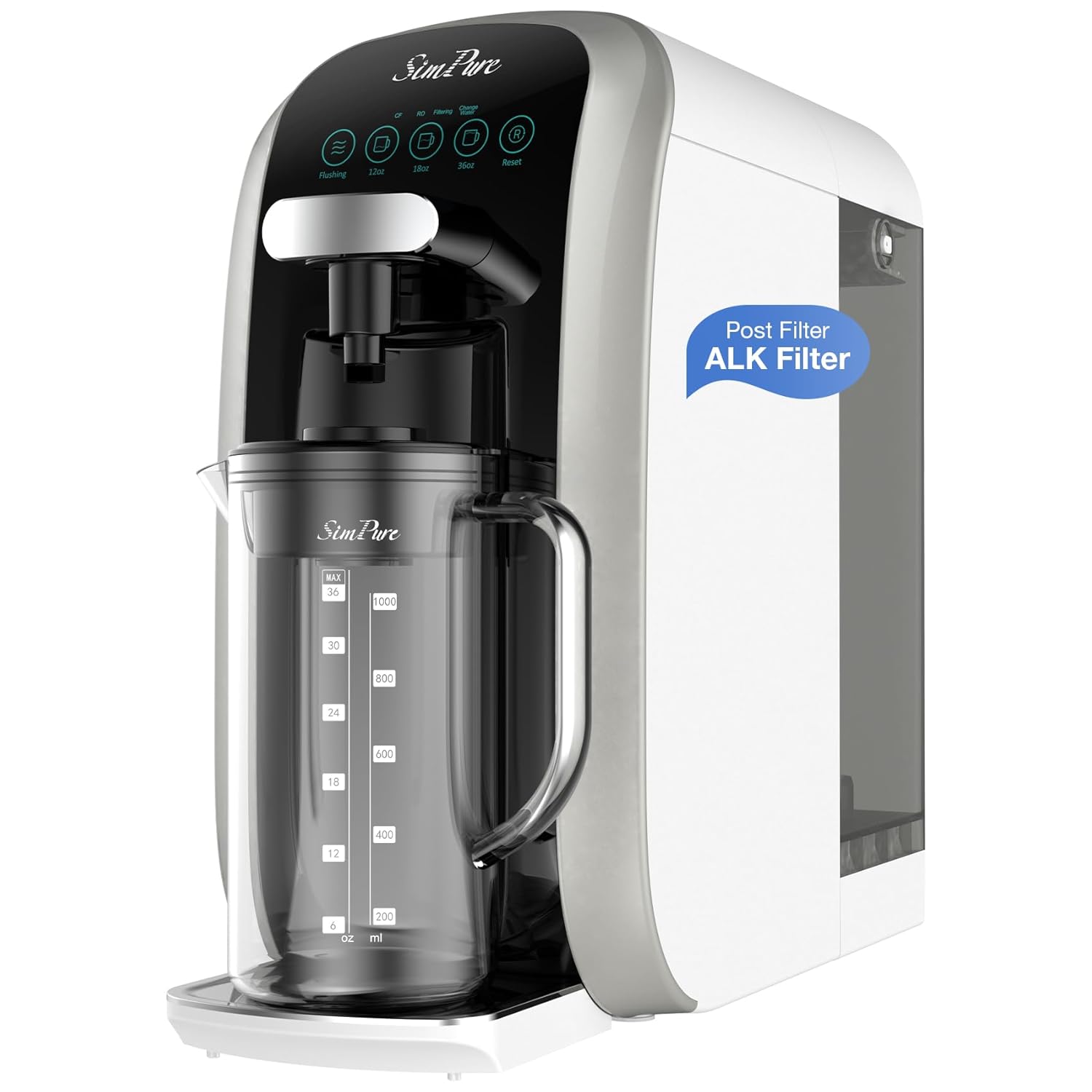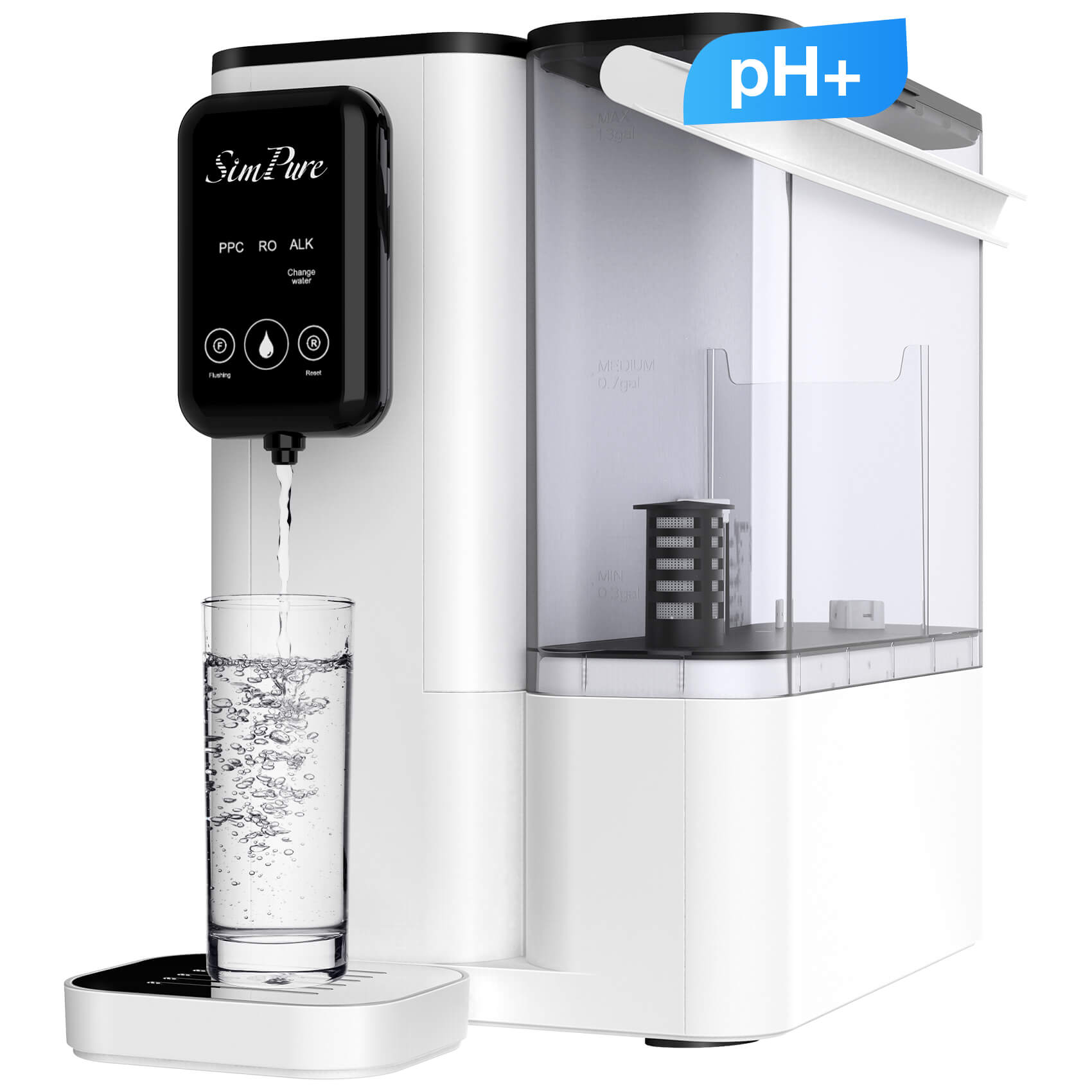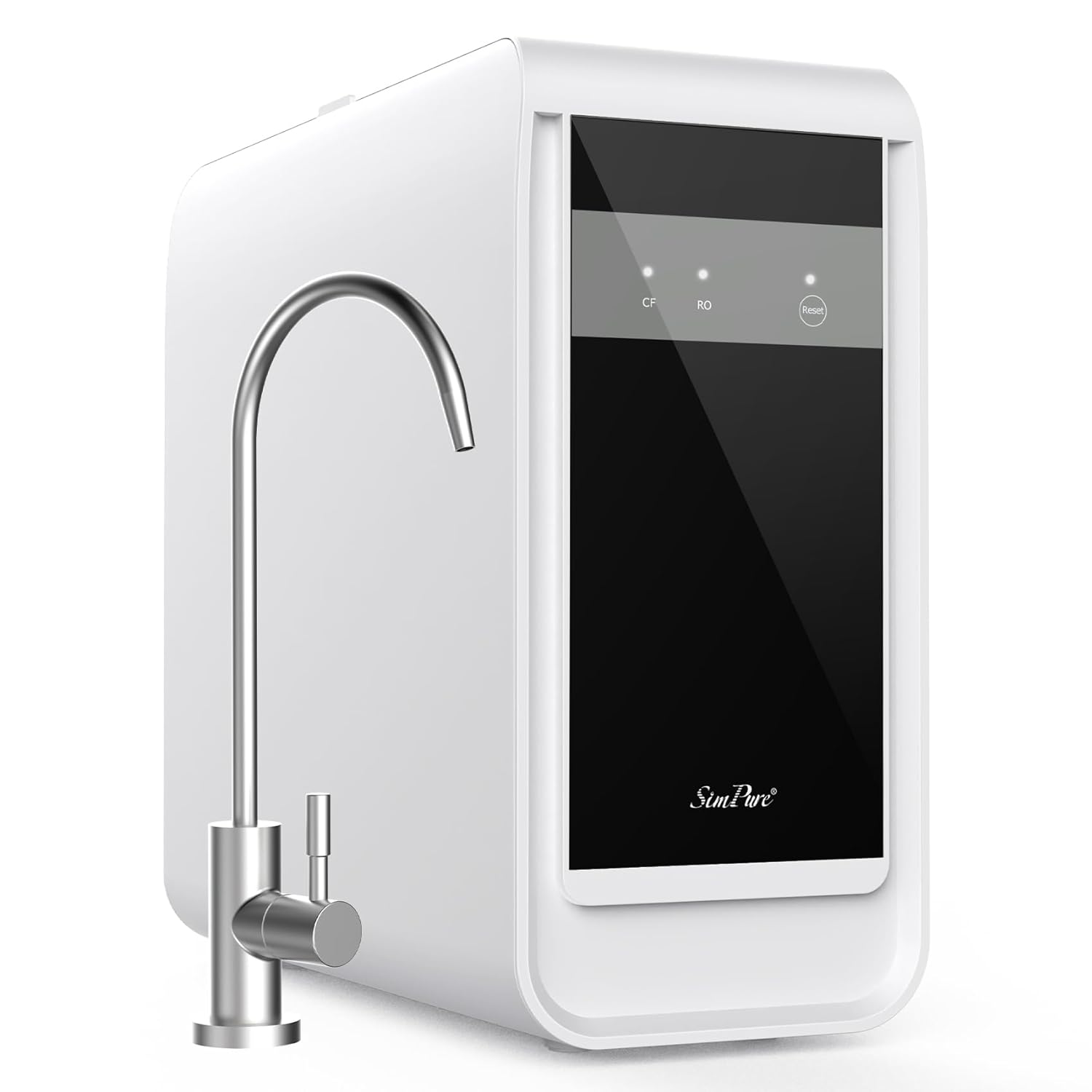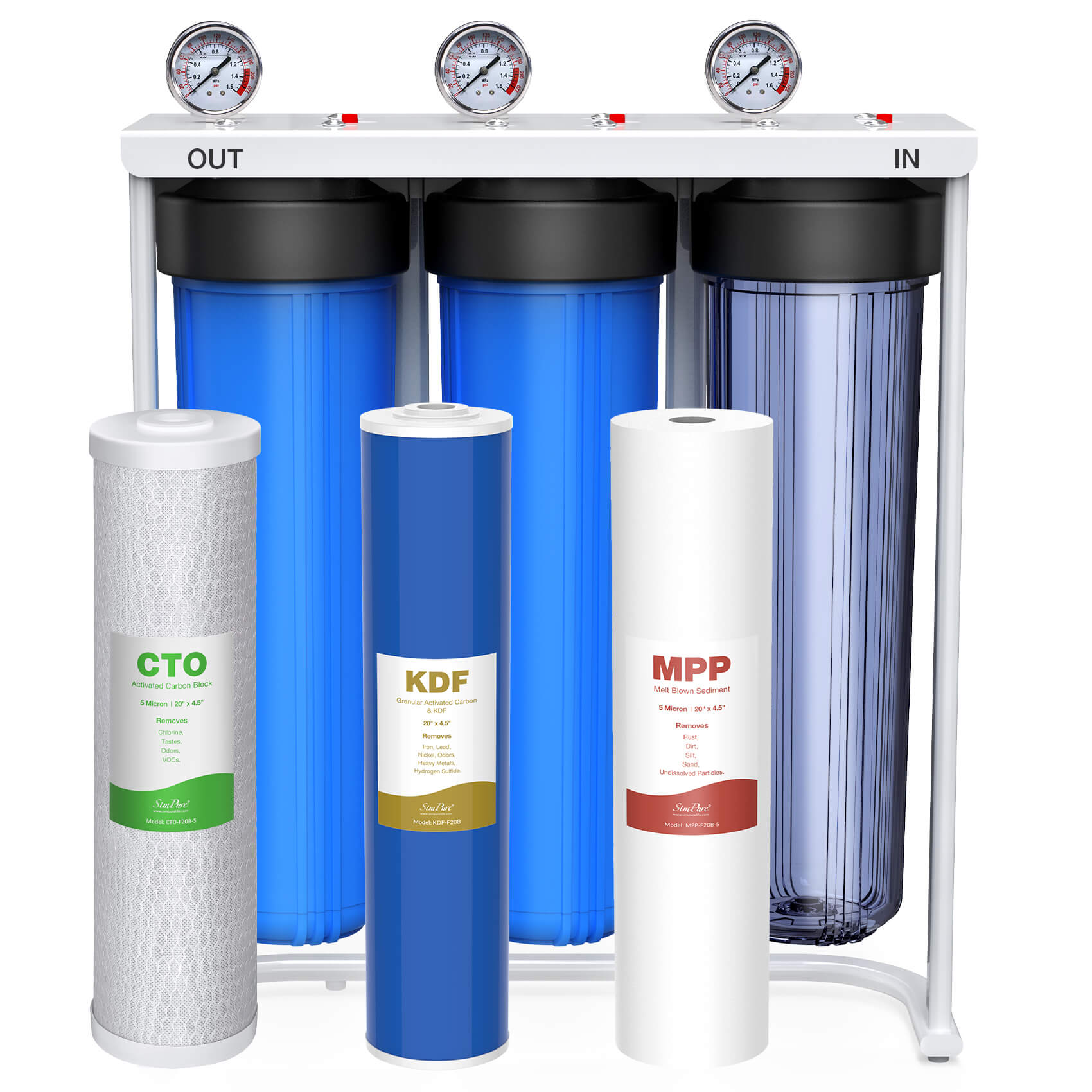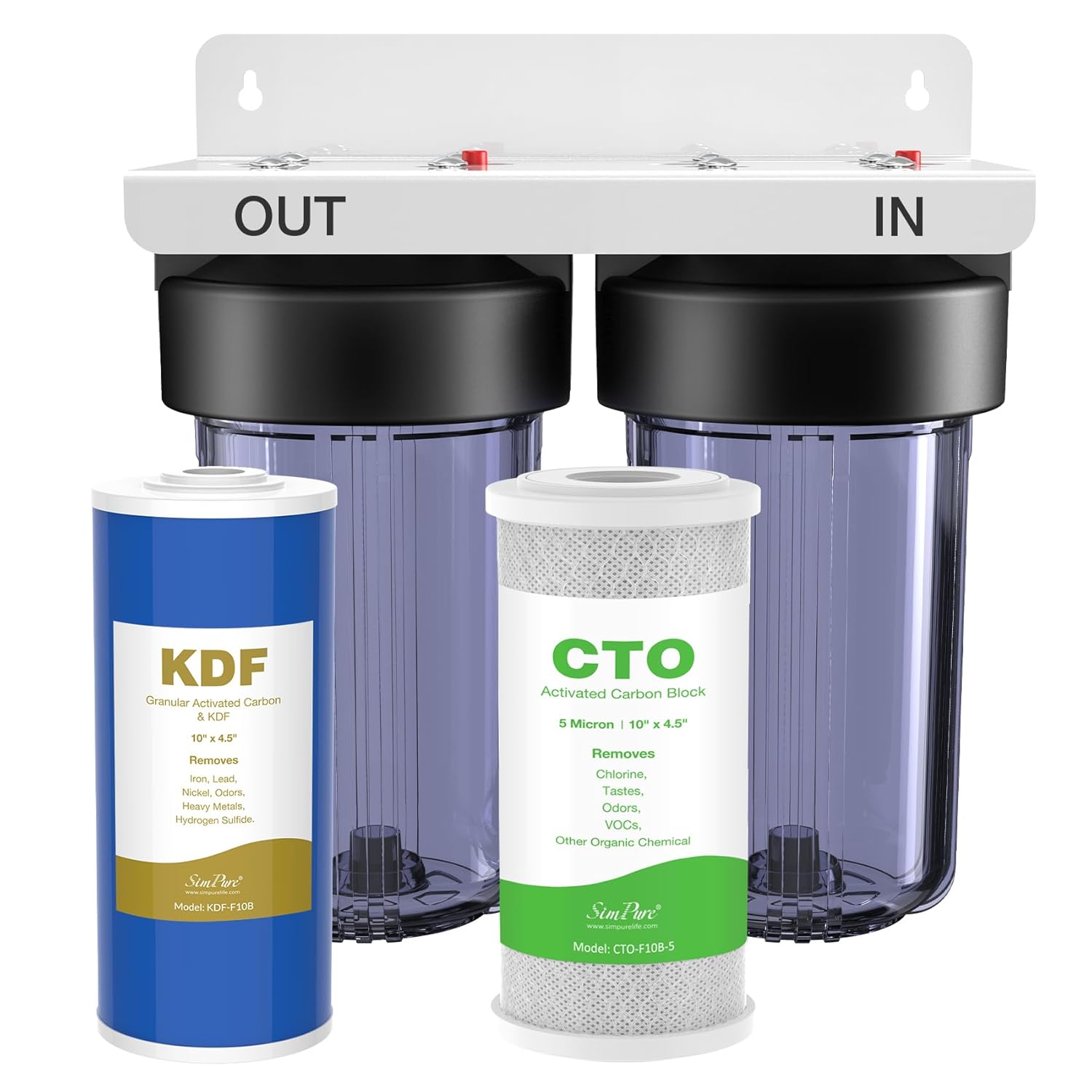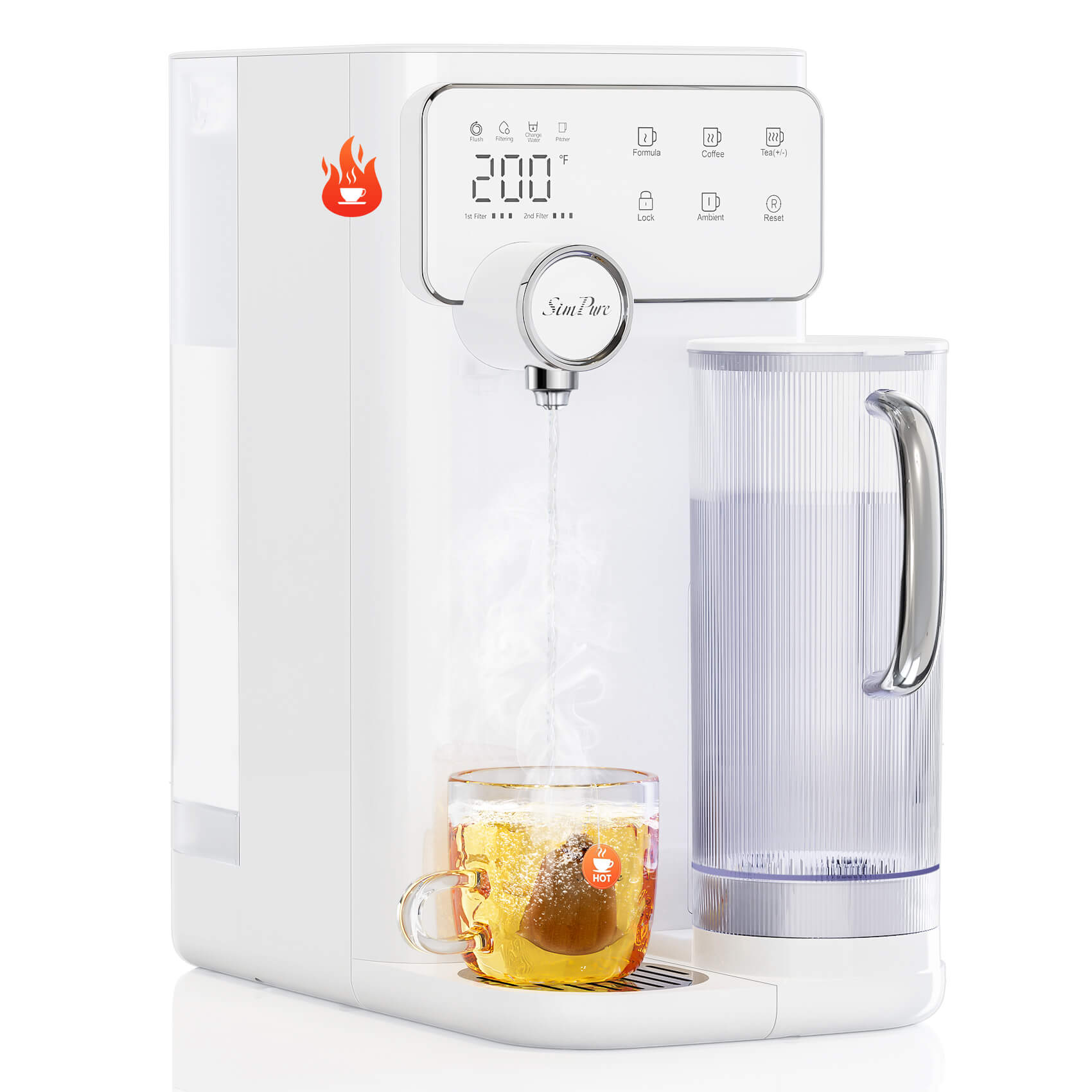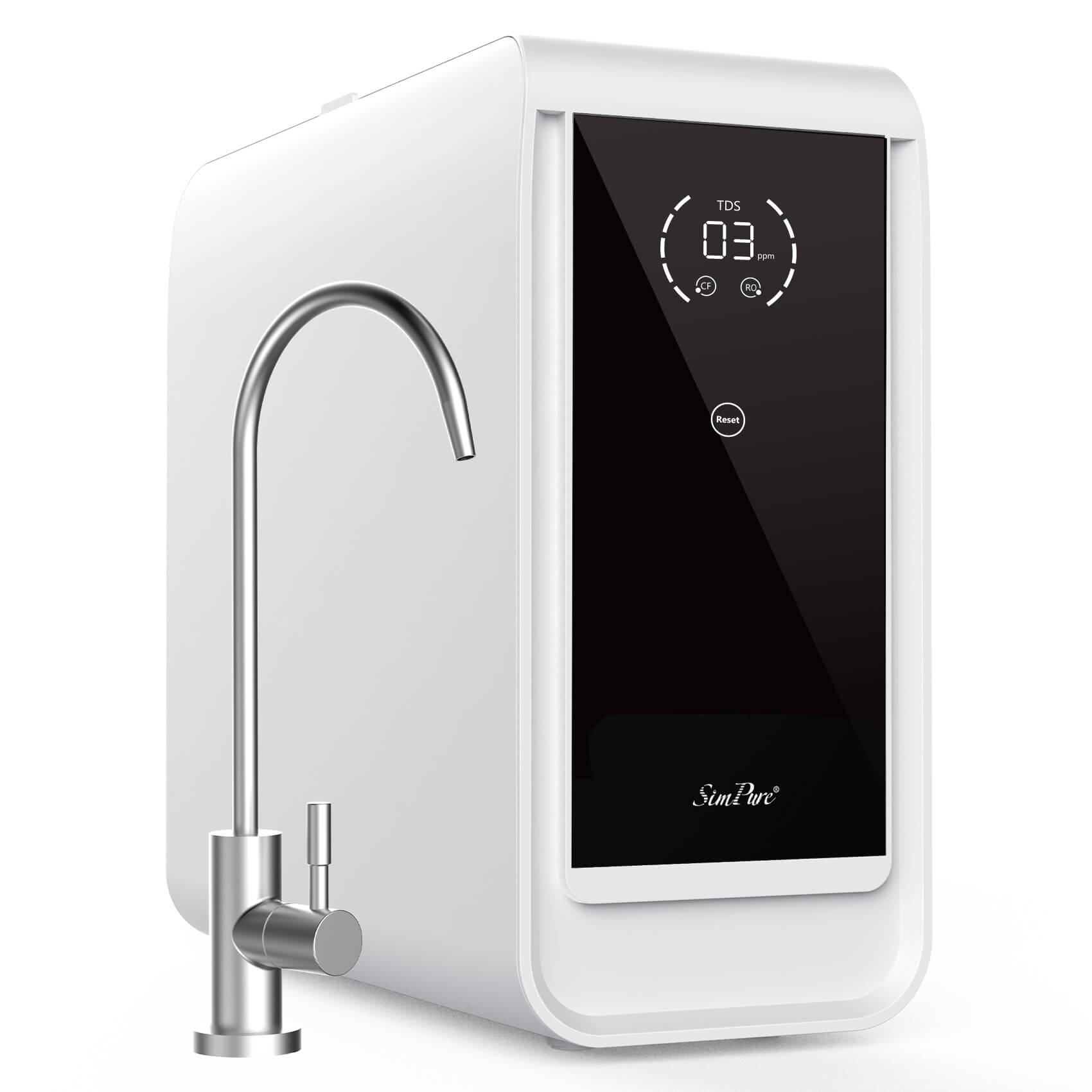A major building block of human tissues and cells, almost all major systems in your body depend on water to function and survive. Water makes up approximately 60% of your body weight and is essential for the proper functioning of all body functions. In this article, we'll take a closer look at what does water do for the body, and the different roles that different types of water play in your body.
What Does Water Do for the Body?

1. Helps Deliver Oxygen Throughout the Body
Water can help deliver Oxygen through our bodies. Hemoglobin, a protein in red blood cells, binds to oxygen molecules and is suspended in the watery plasma of blood. Without water, blood volume decreases, impairing the delivery of oxygen to tissues.
2. Helps Regulate Body Temperature
The flow and evaporation of water in the body can help the body cool down, maintain normal body temperature, and prevent damage to the body caused by hyperthermia. It is also an important aspect of what does water do for the body.
3. Helps Expel Waste from the Body
Water helps expel waste from the body by supporting the functions of the kidneys, which filter waste products from the blood and excrete them as urine. Adequate hydration helps the kidneys work efficiently, removing waste and toxins from the body.
4. Helps the Digestive System Function Properly
Water is essential for the proper functioning of the digestive tract. Water can help the food in the digestive tract to digest, absorb, and transport, and at the same time, it can also promote intestinal peristalsis and prevent digestive tract problems such as constipation.
5. Prevents Kidney Damage
The kidneys need enough water to complete the excretion of metabolic waste, and also need to maintain a balance of water and electrolytic loads to ensure a stable environment in the body. Not enough water can also lead to kidney stones and other problems. Water helps prevent kidney damage by promoting the filtration of waste products and toxins through the kidneys.
6. Helps Lubricate Joints
Chronic dehydration reduces the shock-absorbing ability of joints, leading to joint pain. Water helps keep joints lubricated, reducing joint pain and inflammation. Water helps lubricate joints by serving as a component of synovial fluid, which surrounds and cushions the joints. This fluid reduces friction between the bones and helps the joints move smoothly.
7. Keeps the Mouth and Nasal Cavity Moist
Water helps keep the eyes, mouth, and nasal passages moist and protects the health of the mucous membranes. Drinking water also keeps your mouth clean. Saliva and mucus, both primarily made up of water, also play a crucial role in maintaining moisture and protecting against infections in these areas.
8. Maintains the Acid-Base Balance of the Body
Is there anything else on what does water do for the body? Water acts as a solvent for many acidic and basic substances, allowing them to dissociate into their respective ions. The human body needs to maintain a certain acid-base balance to maintain the stability of the internal environment of the body, and water can help maintain this balance.
9. Helps Maintain Blood Pressure
Water is essential for maintaining blood volume, which in turn helps regulate blood pressure. A lack of water can cause the blood to thicken, which increases blood pressure. Adequate water intake ensures proper blood volume, helping to maintain healthy blood pressure levels.
10. Helps Improve Skin Condition
Dehydration can wrinkle prematurely, and water helps maintain skin moisture and elasticity, slowing down skin aging. Water helps improve skin condition by keeping it hydrated and moisturized. When the skin is well-hydrated, it becomes more plump, radiant, and elastic, reducing the appearance of fine lines and wrinkles. Additionally, drinking enough water helps flush out toxins from the body, resulting in clearer and healthier-looking skin.
11. Helps Improve Cognitive Function and Mental Clarity
Water is essential for proper brain function, including maintaining cognition, concentration, and memory. Prolonged dehydration can affect thinking skills. Even mild dehydration can cause cognitive impairment, decreased concentration, and mental fatigue. Adequate hydration can improve mental clarity, memory, and overall cognitive function.
12. Helps Improve Athletic Performance
Water is essential for athletic performance by regulating body temperature, lubricating joints, and transporting nutrients to muscles. It also aids in preventing dehydration, which can cause fatigue, cramping, and impaired cognitive function. Adequate hydration is essential for optimal athletic performance.
13. Helps Prevent and Relieve Muscle Cramps
Water helps prevent and relieve muscle cramps by keeping the body hydrated, which helps maintain electrolyte balance and regulates muscle contractions. Maintaining adequate fluid intake can help keep muscle cells functioning properly and reduce the risk of muscle cramping and injury. This is also what does water do for the body.
14. Helps Prevent Urinary Stones
Water is the best way to dilute your urine, which can help prevent the minerals in your urine from becoming too concentrated in the urine and forming stones. Drinking plenty of water also helps to flush out any existing stones and prevent the buildup of new ones.
15. Helps Maintain Cardiovascular Health
Water plays a crucial role in maintaining cardiovascular health by regulating blood volume, blood pressure, and heart rate. Dehydration can cause the blood to thicken and increase the workload of the heart, leading to cardiovascular complications. Adequate water intake helps maintain cardiovascular health and reduces the risk of heart disease and stroke.
16. Helps Prevent and Treat Dry Mouth and Bad Breath
Water helps prevent and treat dry mouth by keeping the mouth hydrated and stimulating saliva production. Saliva helps neutralize acids produced by bacteria and washes away food particles that can lead to bad breath. Adequate water intake can help flush out bacteria and residue in your mouth, reducing your risk of tooth decay and bad breath.
17. Helps Improve Immune System Function
Adequate water intake helps dilute toxins in the body, maintains the normal function of cells and tissues, and supports the functioning of immune cells, which is essential for maintaining the normal function of the immune system.
18. Aids in Weight Loss
Drinking enough water can help increase satiety, reduce food intake and control appetite. It can also boost metabolism, helping the body burn more calories. Drinking a glass of water before a meal can help you feel fuller at mealtime, which can help you eat less and control your calorie intake. Aim to drink at least 8 cups (64 ounces) of water per day.
19. Helps Prevent and Relieve Headaches and Migraines
Drinking water helps prevent and relieve headaches and migraines by keeping the body hydrated, which helps to maintain proper blood flow and reduce inflammation in the brain. Dehydration is one of the common causes of headaches. Maintaining adequate fluid intake can help maintain fluid and electrolyte balance in the body and reduce dehydration-related headaches.
20. Helps Improve Sleep Quality
Adequate water intake can help improve sleep quality and reduce nighttime thirst. Drinking enough water throughout the day can help improve sleep quality by promoting physical comfort and reducing the likelihood of nighttime disturbances like cramps, headaches, and dry mouth.
Bonus: 5 Tips to Help You Drink More Water
In the above content, we have learned what does water do for the body, and we have a clearer understanding of what role does water play in the body. Below we give you some ways to help you drink more water each day.
1. Develop the habit of drinking a glass of water before and after meals. Not only will this help you stay hydrated, but it can also aid digestion and prevent overeating.
2. Carry a water bottle at all times. Carry a reusable water bottle with you wherever you go, having water readily available can make it easier to drink throughout the day.
3. Season the water. If you find plain water boring, try adding natural flavors such as lemon, mint, or berries to your water for extra flavor.
4. Eat more fruits and vegetables. The high water content in fruits and vegetables increases the amount of water in your body.
5. Install a water purifier. If you feel that the water in your home has a scale or peculiar smell, you can install a water purifier to get drinking water that does not contain impurities and peculiar smell and tastes better.
What Does Cold Water Do to Your Body?
Cold water can cause blood vessels to constrict, or narrow, reducing blood flow to certain parts of the body. This can help reduce inflammation and swelling, and may be beneficial in some situations, such as reducing swelling during an injury or relieving a sore throat. Plus, drinking cold water slightly increases your body's energy expenditure, increasing your calorie burn. And it has a refreshing effect on the body, especially in hot weather or after exercise, it can help lower body temperature.
What Does Hot Water Do to Your Body?
Hot water dilates blood vessels, which improves blood circulation. This helps to better deliver oxygen and nutrients to all parts of the body and may provide temporary relief from conditions such as cold hands and feet. Plus, drinking hot water can help with hydration because it's better absorbed by the body than cold water. It can also help soothe a sore throat or relieve a cough and congestion. Overall, hot water can have several beneficial effects on the body, including relaxation, improved circulation, pain relief, and hydration.
What Does Lemon Water Do to Your Body?
Lemon water is a refreshing and hydrating drink, and lemons are a rich source of vitamin C, an antioxidant that helps support the immune system, promotes healthy skin, and aids in wound healing. Plus, the acidity in lemon water may stimulate the production of digestive enzymes, which can aid digestion. It may also help freshen your breath and reduce bad breath caused by certain things or bacteria in your mouth.
What Does Coconut Water Do for the Body?

Coconut water is an excellent electrolyte-rich natural drink that can help replenish your body's fluids and essential minerals. It contains important electrolytes such as potassium, sodium, magnesium, and calcium that are essential for maintaining proper hydration and electrolyte balance. Coconut water also contains natural sugars like glucose and fructose, which provide the body with a quick source of energy. Coconut water is also relatively low in calories compared to other beverages, making it a healthier option for those concerned about their calorie intake.
What Does Alkaline Water Do to the Body?
Alkaline water, also known as high pH water or ionized water, has a higher-pH than regular tap water. Some proponents of alkaline water claim that it improves digestion by reducing acidity in the stomach, helps balance the body's pH by reducing acidity, and improves athletic performance by reducing muscle fatigue. However, the scientific evidence supporting health claims about alkaline water is limited, and many of the purported benefits are controversial. You can get alkaline water at home with our SimPure T1-6 stage under sink alkaline water filter.
In conclusion, water plays several key roles in the body. Through the above reading, I believe you have roughly understood the answer to the question of what does water do for the body. Therefore, ensuring sufficient water intake in the body by drinking enough water every day and eating water-rich foods is essential for protecting the body's health and promoting the normal functioning of the body.



